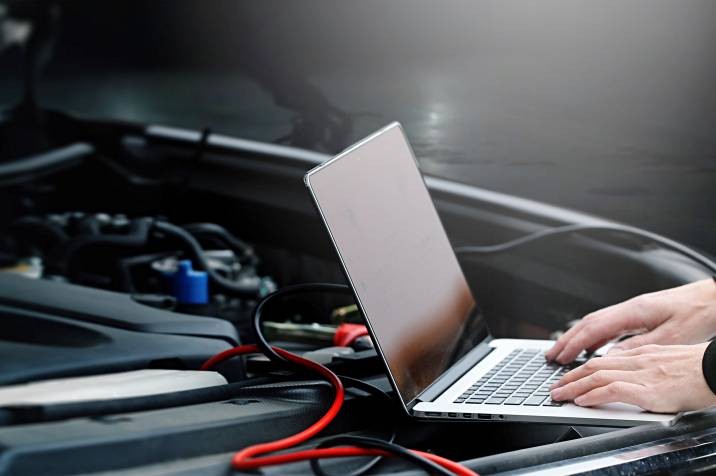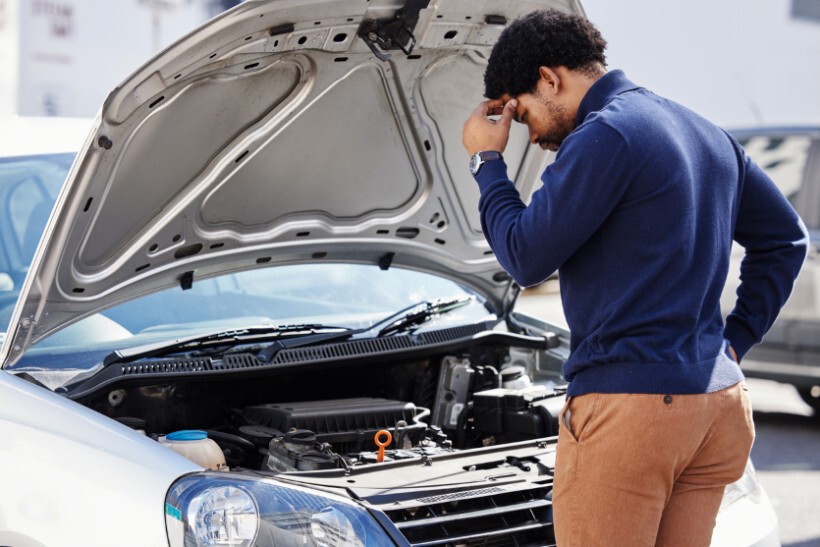Knowing the health of your vehicle is crucial, and in today’s automotive world, computer diagnostics are key to understanding what’s going on under the hood. If your check engine light is on, or you suspect something isn’t quite right with your car, getting a diagnostic test is a smart move. But the big question is, how much for a computer car diagnostic should you expect to pay?
The cost of a car diagnostic test can vary significantly, typically ranging from $20 to over $400. This price fluctuation depends on several factors, including the type of service provider, the make and model of your vehicle, and where you are located. While a basic diagnostic check might be affordable, more complex issues or luxury vehicles can lead to higher costs.
Understanding what a car diagnostic test is, what it entails, and the factors influencing its price will help you make informed decisions and avoid overpaying. Let’s dive into the details to give you a clearer picture of car diagnostic costs.
Understanding Car Diagnostic Tests
Modern cars are sophisticated machines equipped with onboard computers and numerous sensors that constantly monitor various systems. When these sensors detect a problem, it often triggers the check engine light. A car diagnostic test is essentially a way to communicate with your car’s computer and retrieve stored error codes. These codes provide mechanics with valuable clues about potential issues within the vehicle.
Think of it as a health check for your car, but instead of a stethoscope, mechanics use specialized scanning tools that plug into your car’s OBD-II port (On-Board Diagnostics II). This port is typically located under the dashboard. The scanner reads the diagnostic trouble codes (DTCs) and other data from the car’s computer, providing a snapshot of your vehicle’s condition.
What Does a Full Car Diagnostic Test Involve?
A mechanic utilizing a diagnostic computer to assess car problems.
A comprehensive car diagnostic test goes beyond just reading error codes. It can delve into multiple systems to identify the root cause of a problem. A thorough diagnostic service should typically cover the following areas:
- Engine Diagnostics: Assessing engine performance, misfires, fuel efficiency, and overall engine health.
- Transmission Diagnostics: Checking for transmission issues, shifting problems, and fluid pressure.
- Braking System Diagnostics: Evaluating ABS (Anti-lock Braking System), brake pad wear sensors, and overall brake functionality.
- Exhaust System Diagnostics: Analyzing emissions, catalytic converter efficiency, and exhaust leaks.
- Fuel System Diagnostics: Examining fuel pressure, fuel injectors, and fuel pump performance.
- Electrical System Diagnostics: Investigating battery health, alternator output, sensor malfunctions, and wiring issues.
- Air Conditioning and Heating (HVAC) Diagnostics: Checking compressor function, refrigerant levels, and blower motor operation.
- Airbag and Safety Systems Diagnostics: Ensuring proper functioning of airbags, seatbelt pretensioners, and other safety features.
- Sensors and Computer Systems Check: Verifying the functionality of various sensors throughout the vehicle and the car’s main computer.
It’s important to note that a diagnostic test is just the first step. While it can pinpoint the system or area experiencing problems, it doesn’t always provide the exact solution. Further manual inspection and testing are often required to accurately diagnose and repair the issue.
Car Diagnostic Test Costs: Breaking Down the Price
Now, let’s get to the core question: how much does a computer car diagnostic cost? As mentioned earlier, the price range is broad, but here’s a more detailed breakdown of what you can expect:
| Type of Diagnostic Test | Cost Estimate | Description |
|---|---|---|
| Basic Diagnostic Scan | $20 – $75 | Typically offered at auto parts stores or some independent shops. Often involves a quick scan for basic error codes, may be free at some locations if you purchase parts. |
| Mid-Range Diagnostic Test | $75 – $150 | More in-depth analysis at independent repair shops. Includes a more thorough scan, code interpretation, and potentially some preliminary system checks. |
| Dealership Diagnostic Test | $100 – $200+ | Diagnostic services at car dealerships. Often utilize manufacturer-specific tools and expertise, which can justify a higher price. |
| Advanced/Full Vehicle Diagnostic | $200 – $400+ | Comprehensive diagnostics for complex issues or luxury/high-performance vehicles. May include specialized equipment and extensive labor for detailed analysis. |
| Mobile Diagnostic Service | Varies, often $100 – $300+ | Convenience of a mechanic coming to your location. Pricing can depend on location, travel distance, and complexity of the diagnostic required. |


These are estimated ranges, and actual costs can vary. Remember that these prices usually cover the diagnostic test itself and the mechanic’s labor to perform the scan and interpret the results. If the diagnostic test reveals a problem that requires repair, those repair costs will be additional.
Factors Influencing Car Diagnostic Costs
Several factors can affect the final price you pay for a computer car diagnostic:
Location, Location, Location
Just like with any service, geographical location plays a significant role. Areas with a higher cost of living, like major metropolitan cities, tend to have higher labor rates for mechanics, impacting diagnostic service prices. Conversely, less populated or rural areas might have lower prices due to less overhead and competition.
Mechanic’s Expertise and Shop Type
The experience and reputation of the mechanic or auto repair shop will also influence pricing. Highly experienced, certified technicians, especially those specializing in specific car brands, may charge more for their expertise. Dealerships, with their brand-specific tools and trained technicians, often have higher diagnostic fees compared to independent shops or chain auto repair stores.
Vehicle Make and Model
Luxury vehicles, high-performance cars, and vehicles with advanced technology often require specialized diagnostic equipment and expertise. Diagnosing these types of vehicles can be more complex and time-consuming, leading to higher diagnostic costs. Common, mass-market vehicles are generally simpler to diagnose, potentially resulting in lower fees.
Complexity of the Issue
The nature of the problem can also affect the diagnostic cost. If the issue is straightforward and easily identified by the initial scan, the cost might be on the lower end. However, if the problem is complex, intermittent, or requires extensive troubleshooting to pinpoint, the diagnostic process can take longer, increasing labor costs and the overall price.
Diagnostic Equipment Used
Different diagnostic tools have varying capabilities and costs. Basic OBD-II scanners are relatively inexpensive, while advanced diagnostic scan tools used by dealerships or specialized shops can be quite costly. Shops that invest in advanced equipment may need to charge slightly more to recoup their investment and provide more thorough diagnostics.
When Should You Get a Car Diagnostic Test?
A car owner examining the engine after experiencing car issues.
Knowing when to get a car diagnostic test can save you money and prevent minor issues from becoming major, expensive repairs. Here are key scenarios when a diagnostic test is recommended:
- Check Engine Light is On: This is the most obvious sign. The check engine light illuminates when the car’s computer detects a problem. A diagnostic test will help identify the cause.
- Used Car Purchase: Before buying a used car, a pre-purchase inspection including a diagnostic test is highly recommended. It can reveal hidden problems and help you make an informed decision.
- Preventive Maintenance: Regular diagnostic checks as part of your preventive maintenance schedule can catch minor issues early, preventing them from escalating into costly repairs down the road.
- Performance Issues: If you notice any unusual symptoms like decreased fuel economy, rough idling, strange noises, or changes in driving performance, a diagnostic test can help identify potential problems even if the check engine light isn’t on.
Finding Affordable and Reliable Car Diagnostics
To ensure you get a fair price for a computer car diagnostic, consider these tips:
- Compare Quotes: Call several local mechanics, independent shops, and dealerships to get quotes for a diagnostic test. Ask about what’s included in their diagnostic service.
- Ask About Diagnostic Fees: Inquire if the diagnostic fee is waived or reduced if you decide to have the repair work done at their shop. Some places will credit the diagnostic cost towards repairs.
- Read Reviews: Check online reviews and ratings for local mechanics and auto repair shops to gauge their reputation and customer satisfaction.
- Consider Mobile Diagnostics: For convenience, mobile diagnostic services can be a good option, but compare their pricing with shop-based services to ensure it fits your budget.
- Be Clear About Your Needs: When booking a diagnostic test, clearly explain your concerns and any symptoms you’ve noticed. This helps the mechanic understand the potential issues and provide a more accurate quote.
Conclusion: Investing in Car Diagnostics for Peace of Mind
Understanding how much for a computer car diagnostic tests cost and what they involve empowers you to be a proactive car owner. While the cost can vary, investing in a diagnostic test is often a worthwhile expense. It provides valuable insights into your vehicle’s health, helps identify potential problems early, and ultimately can save you money on costly repairs in the long run. Whether you’re facing a check engine light or simply want to ensure your car is in top condition, a computer car diagnostic is a valuable tool in modern car maintenance.
